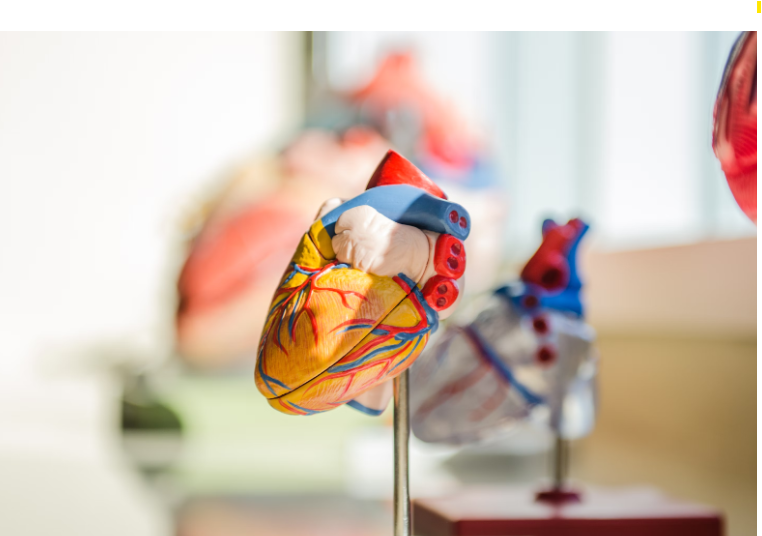Guide to Gerontology and How Case Managers can Help

Gerontology & Case Management
Gerontology is the study of aging and the issues associated with it. It is a multidisciplinary field that encompasses the biological, psychological, and social aspects of aging. Here are the main areas of focus within gerontology:
Biological Gerontology
Biological gerontology, also known as biogerontology, is the subfield of gerontology that focuses on the biological processes of aging. It seeks to understand the cellular and molecular mechanisms that cause aging and age-related diseases, aiming to improve healthspan (the period of life spent in good health) and potentially extend lifespan. Biological gerontology also includes:
- Study of Aging Processes: Examines the physiological changes that occur as individuals age.
- Research on Longevity: Investigates the factors that contribute to longer life spans and how to improve health during aging.
- Age-Related Diseases: Focuses on diseases that predominantly affect older adults, such as Alzheimer’s, osteoporosis, and cardiovascular diseases.

Psychological Gerontology
Psychological gerontology, also known as geropsychology, is a subfield of gerontology that focuses on the psychological and emotional aspects of aging. It encompasses the study of mental health, cognitive functioning, behavior, and emotional well-being in older adults. The goal is to understand the psychological changes that occur with aging and to develop interventions that promote mental health and improve the quality of life for older adults.
- Cognitive Changes: Studies how aging affects mental functions like memory, decision-making, and learning.
- Emotional Well-being: Looks into the emotional and mental health challenges that older adults may face, including depression, anxiety, and the impact of life transitions like retirement.
- Behavioral Changes: Examines changes in behavior and personality as individuals age.
Social Gerontology
Social gerontology is a subfield of gerontology that focuses on the social aspects of aging. It examines how aging affects individuals and how society responds to the aging population. This field involves the study of social roles, relationships, and policies as they relate to older adults
- Sociological Aspects: Investigates the impact of aging on social structures, family dynamics, and roles within society.
- Policy and Programs: Looks at how public policies, social programs, and community resources support the aging population.
- Cultural Perspectives: Explores how different cultures perceive and treat aging and the elderly.
Applied Gerontology
Applied gerontology is the practical application of knowledge about aging to improve the quality of life for older adults. It involves implementing strategies, programs, and interventions based on gerontological research to address the needs of the aging population in various settings, including healthcare, social services, community programs, and policy development.
- Elder Care: Focuses on practical aspects of caring for the elderly, including geriatric care management and the development of age-friendly environments.
- Advocacy and Ethics: Involves advocating for the rights and needs of older adults, as well as addressing ethical issues related to aging and elder care.
- Interventions: Develops and assesses programs and interventions aimed at improving the quality of life for older adults.
Key Themes in Gerontology
- Aging Population: With increasing life expectancy, there is a growing focus on the implications of an aging population on society, economy, and healthcare systems.
- Quality of Life: Strives to enhance the quality of life for older adults through various means, including improved healthcare, social support, and community involvement.
- Interdisciplinary Approach: Combines insights from various fields such as biology, psychology, sociology, medicine, and public health to provide a comprehensive understanding of aging.
How can a Case Manager in the study of Gerontology?
A case manager can provide substantial support and assistance in the field of gerontology, particularly if you or a loved one is an older adult facing challenges associated with aging. Here are several ways a case manager can help:
1. Assessment of Needs
- Comprehensive Evaluation: Conduct thorough assessments to identify the specific needs, strengths, and preferences of the older adult.
- Personalized Care Plans: Develop individualized care plans that address medical, social, and emotional needs.
2. Resource Coordination
- Connecting with Services: Link older adults with necessary services such as healthcare providers, home care services, transportation, and meal delivery programs.
- Navigating Systems: Help navigate complex healthcare and social service systems, ensuring access to benefits and entitlements like Medicare, Medicaid, and Social Security.
3. Medical Care Management
- Healthcare Coordination: Coordinate medical appointments, treatments, and follow-ups with various healthcare professionals.
- Medication Management: Assist with organizing and managing medications to ensure proper adherence and avoid adverse interactions.
4. Support for Daily Living
- Home Safety: Assess home environments for safety risks and recommend modifications to prevent falls and accidents.
- Daily Activities: Arrange for assistance with activities of daily living (ADLs) such as bathing, dressing, and eating if needed.
- Counseling Services: Provide referrals to mental health professionals for counseling or therapy.
- Support Groups: Connect older adults and their families with support groups for social interaction and shared experiences.
5. Caregiver Support & Advocacy
- Family Education: Educate family members about aging-related issues and caregiving strategies.
- Respite Care: Arrange for respite care to give primary caregivers temporary relief from their caregiving duties.
- Client Advocacy: Advocate on behalf of the older adult to ensure their needs and preferences are respected in healthcare and social service settings.
- Rights Protection: Protect the rights of older adults, particularly in cases of abuse, neglect, or exploitation.
6. Long-Term Planning
- Future Care Plans: Assist with planning for future care needs, including long-term care options like assisted living or nursing homes.
- Financial Planning: Provide information on financial planning, including budgeting for future care costs and accessing financial assistance programs.
7. Quality of Life & End of Life Care
- Social Engagement: Promote social activities and community involvement to combat isolation and enhance quality of life.
- Wellness Programs: Encourage participation in wellness programs focused on physical, mental, and emotional health.
- Advanced Directives: Help with creating advanced directives and end-of-life planning, ensuring that the older adult’s wishes are documented and respected.
- Palliative and Hospice Care: Coordinate palliative or hospice care services when appropriate, focusing on comfort and quality of life in the final stages of life.
In summary, a case manager specializing in gerontology can provide comprehensive support that addresses the multifaceted needs of older adults, helping them maintain independence, improve their quality of life, and navigate the complexities of aging.
Contact Rehabilitation Care Coordination today with questions.
